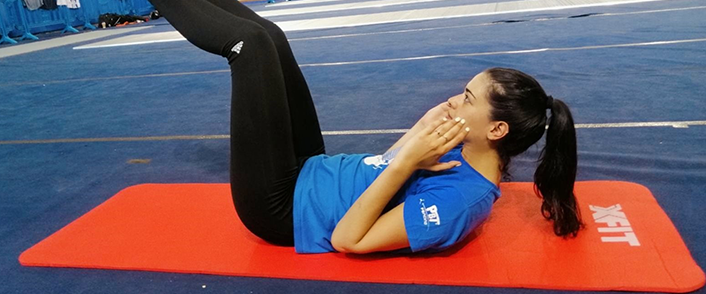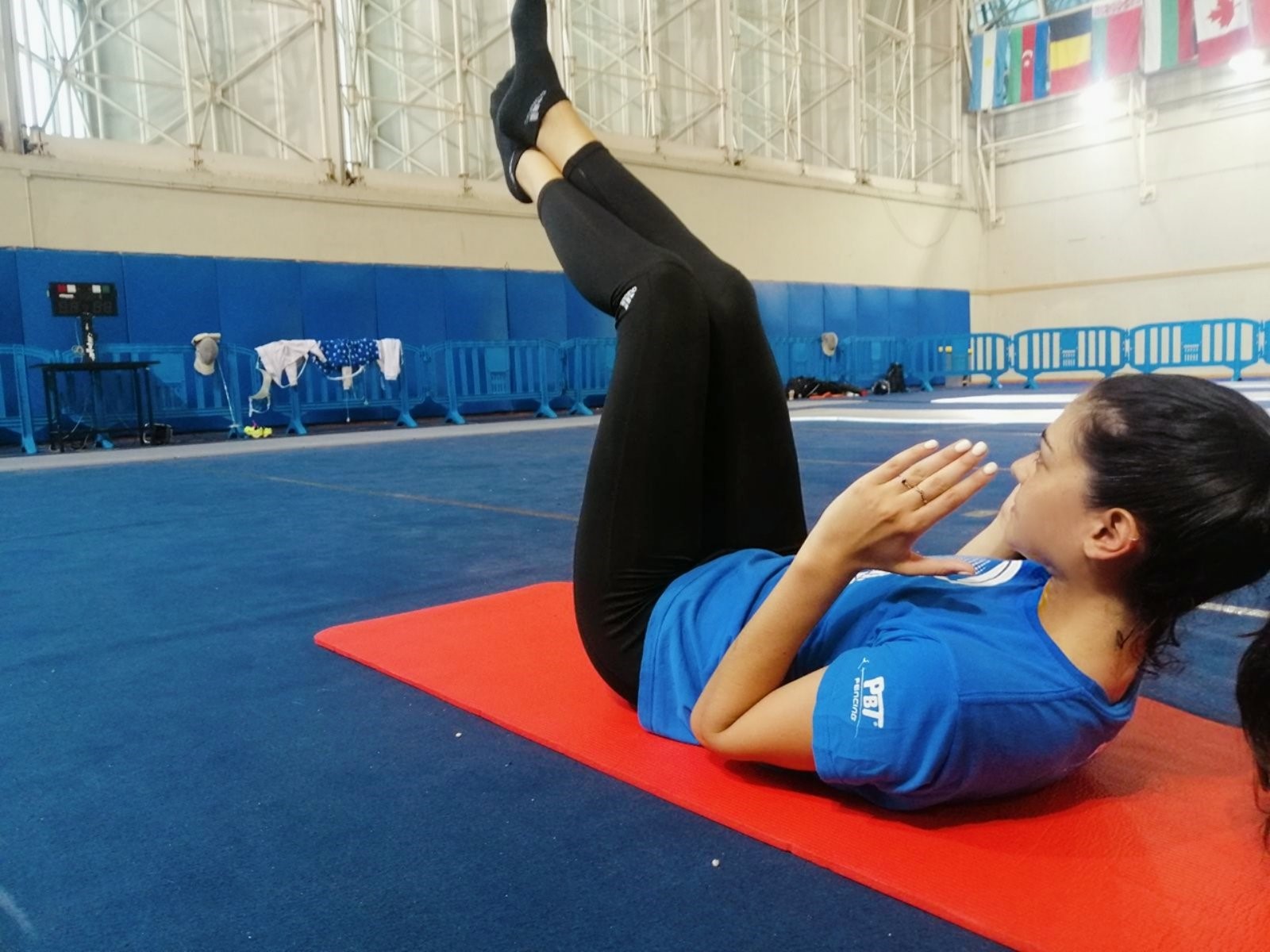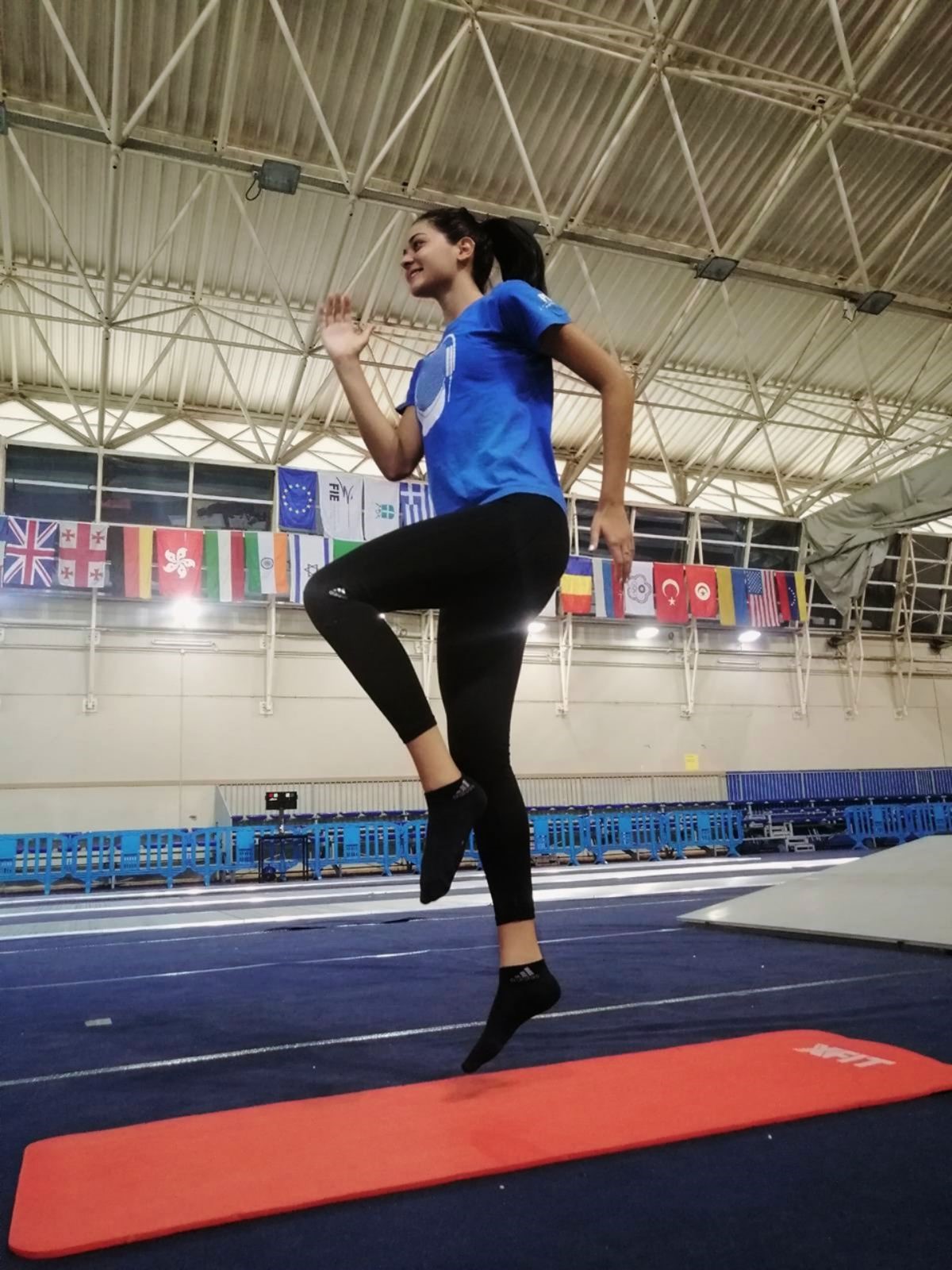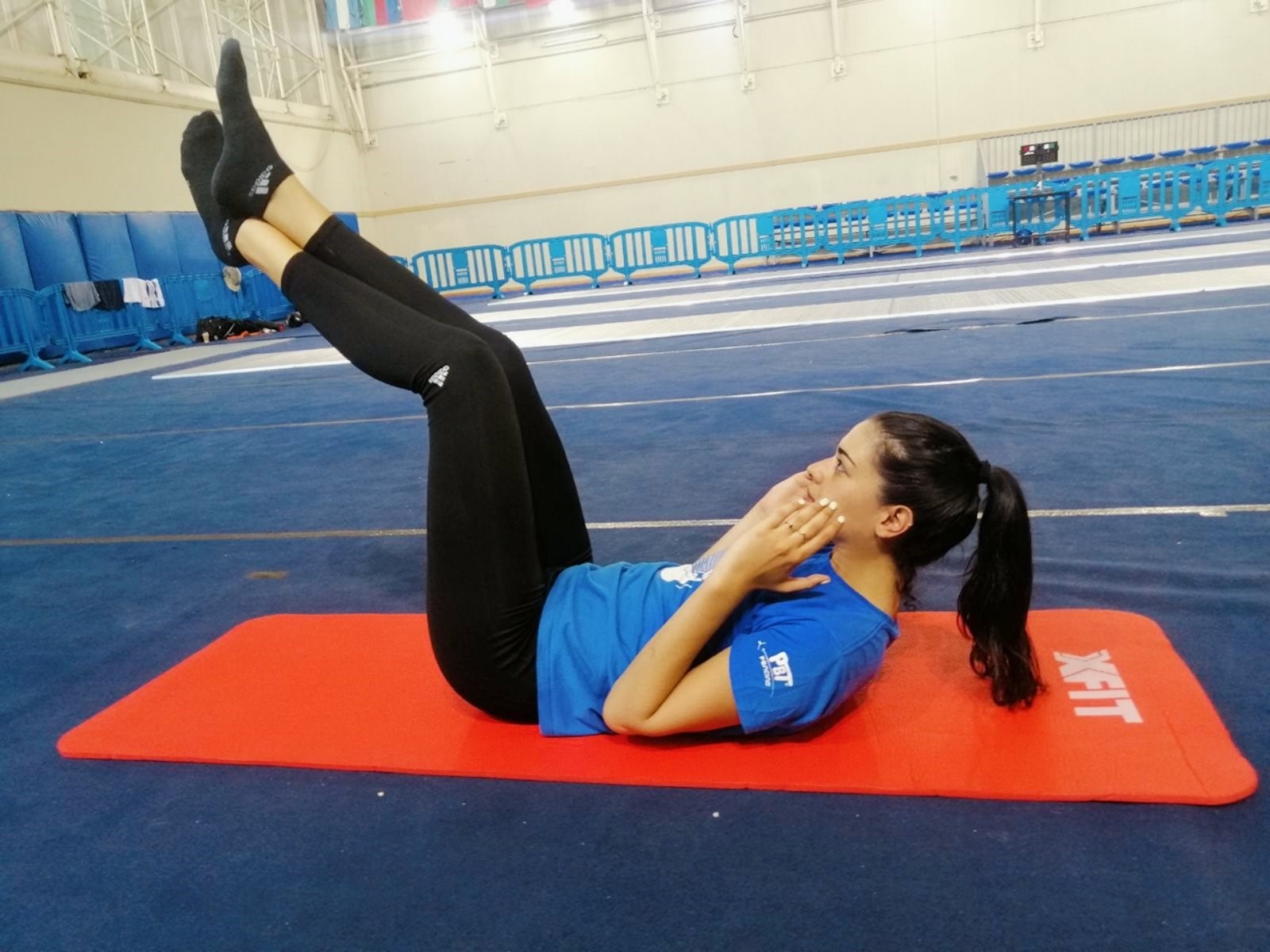I have three conditional trainings per week that last two hous each.

How many conditional trainings you have in a week?
I have three conditional trainings per week that last two hous each.
Do you have a dedicated fitness trainer?
No, my fencing coach, Thanasis Delenikas, is also a trained and certified fitness trainer who has graduated from the Faculty of Physical Education and Sport Science of the National University of Athens (NUA) and is responsible for my fitness training. Moreover, during the past three years me and my coach are cooperating with Mr. Charilaos Tsolakis, who is the Program Manager of the Sports Excellence Center, a research center for athletic performance assessment, where I regularly undergo performance tests in order for my coach to assess my athletic condition and adjust my training accordingly.

What do you like the most and what is your least favorite part in conditional training?
The excercises I enjoy the most are those that combine short duration and high intensity, challenge my reflexes and require fast decision making. To this end, we often use special equipment that generates color and sound signals. The part I enjoy the least is the aerobic training, in particular jogging and running, although I acknowledge that it is essential to achieve and maintain an overall top physical condition.
What are your strengths and weaknesses in this type of training?
My strengths are all the exercises that involve legs, abs and hips, and, as I said, combine high intensity and fast decision making, and my weaknesses are the exercises that involve arms, as well as those aerobic exercises that combine longer duration and lower intensity.

What kind of tools do you use, if any?
Amond others, I use fitness balls, medicine balls, elastic bands, dumbbells, weights and horizontal bars and a smartband for intensity monitoring.
What do you do to prevent injuries?
I strictly follow the instructions of my coach, both during as well as after my training, as he is the person who advises me on rehabilitation issues, such as physiotherapy, massage, streching etc. Further, I follow a healty diet and I try to rest adequately between trainings.
Have you ever had a serious injury/ operation? If yes, how long did it take to get back in shape?
I never suffered a serious injury in my career until today, but I occassionaly faced minor injuries that I overcame quickly with the help and supervision of my physician, Mr. Nikolaos Souras, Orthopedic Doctor and Senior Registrar of the 1st Department of Orthopedics of the Henry Dunant Hospital Center of Athens. One of these minor injuries was caused to the big toe of my right foot a few days before the 2019 World Championship in Budapest, and made me worry a lot about my performance. The intervention of my physician was immediate, effective and allowed me to compete successfully.

What do you think about the importance of physical condition of fencers nowadays and before? Has it changed a lot? How dominant is it in fencing?
The truth is that there are definitely differences in the level of fitness of fencers over the last twenty years, at least from what I see in videos of the past and from what my coach describes to me, but this is normal as the sport has become much more dynamic than it was in the past. Physical condition is now as important as technique and tactics, because, as I said before, the dynamics of the sport are such that in order for any fencer to apply technique and tactics to the last point, he or she must have worked hard on their physical condition. Clearly the athletes of the past were in good physical condition as well, but adapted to different criteria of competitive ability.



